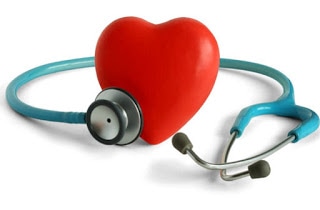This time I want to help you understand the numbers on you’re the blood tests your doctor performs so you are more empowered in your healthcare decisions.
So let’s start here:
What are “good” and “bad” cholesterol and what does it all mean for your health? Well I’ve got news for you! It is not what you think it is!
These particles transport fats around the body, moving them in and out of cells, for all those important functions we talked about last time. It’s important to know that cholesterol is the first line of defense for damage to the blood vessels and rushes in to make repairs and protect membranes when needed. It also works to protect cells and tissues from free radical damage.
“Bad” Cholesterol?
LDLs carry 75% of the cholesterol in our bloodstream and are the most actively involved in cell and tissue repair and protection. HDLs carry the remaining 25% but are essentially a recycling system for cholesterol, taking it back and forth from the liver.
So given that LDLs sound so useful, why have we been told that they measure “bad” cholesterol?
Because damage to the blood vessel membranes sets off an immune response, the blood get’s thicker and the vessels contract. LDLs rush to help and bring cholesterol to help repair tissue. Such areas can be sites where plaque builds up. LDLs are not the cause of the plaque but the result of the need for repair but they have nevertheless been given a bad rap.
Research shows that low levels of LDLs are associated with increased risk of anxiety, cancer and depression. Women with low cholesterol levels tend toward having babies prematurely and having infants with low birth weights. The obsession with driving down LDLs and cholesterol with medications is frequently over aggressive.
“Good” Cholesterol
We’ve also been told that high levels of HDLs are a good thing, because they transport cholesterol out of cells to be recycled in the liver. But the cholesterol that HDLs carry isn’t taken out of the body; that cholesterol is redistributed to cells and tissues. Hmmm.
So I guess you can tell at this point that it’s a lot more complicated than you thought. The blood test you get once a year might not be telling you very much that’s useful. In order to know whether there is really something to be worried about we need to go deeper.
Here are the risk factors we really need to be concerned about:
Small-Dense LDL particles
Blood levels of very small (or otherwise called dense) LDLs can be problematic because they can pass through artery walls and stay in the blood stream longer being more prone to oxidation.
Standard blood test results can be deceiving as you may have a large number of these damaging small LDLs but, since small LDLs contain less cholesterol than large LDLs, you might still have a low LDL number on your blood test and think you are in good shape.
Lipoprotein(a)
Lp(a) is a special type of small LDL particles that is hereditary and is a strong risk factor for cardiovascular disease and blood clotting.
Remnant Lipoprotein
This lipoprotein can be taken up by macrophages and transformed into a foam that is the building blocks of plaque. It is highly correlated with cardiovascular disease.
HDL2b
This is the largest type of HDL particle and a good way to measure how well excess cholesterol is being removed.
Triglycerides
Elevated triglycerides, typically due to excess sugars and carbohydrates, are correlated with heart disease. Look at the triglycerides to HDL ratio. Less than 2 is ideal. Greater than 4 is too high.
We offer comprehensive lipoprotein particles testing if we need to get the full picture of what is going on with your lipids so get in touch if you need help or have concerns.


 RSS Feed
RSS Feed
